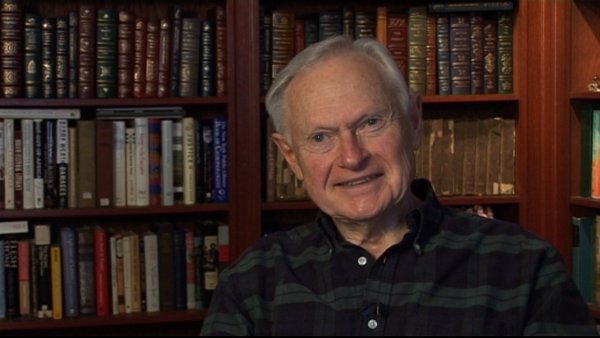NEXT STORY

Percy Shelley's moral imagination
RELATED STORIES

NEXT STORY

Percy Shelley's moral imagination
RELATED STORIES


|
Views | Duration | |
|---|---|---|---|
| 41. The philosophy of surgery | 261 | 04:24 | |
| 42. Judgement as the ultimate tool of a physician | 206 | 04:01 | |
| 43. The art of keeping yourself calm | 1 | 260 | 05:12 |
| 44. Surgery is fun! | 200 | 04:09 | |
| 45. Devouring medical literature | 186 | 03:54 | |
| 46. Averill Liebow and the best compliment I've ever had | 246 | 05:37 | |
| 47. The difference between information, knowledge and wisdom | 241 | 04:45 | |
| 48. The importance of being curious | 203 | 04:44 | |
| 49. 'Be kind, for everyone you meet is fighting a great battle' | 1 | 269 | 03:22 |
| 50. Percy Shelley's moral imagination | 207 | 04:34 |


Humanism, you know, it's a Renaissance concept, but it means a lot. It doesn't mean just… it doesn't mean just being interested in people. It means… having an interest in what life is, in what human beings are, in what social relationships are, in the meaning of life. Okay, in the value of individual life. Humanism comes with a certain kind of morality and it comes with a certain kind of ethical principia.
And you know what it does, this kind of thinking? It does great things for one's self-image. I'll tell you why.
As you speak to people you admire, deal with people that you admire, you recognise that what the Greeks called the good life is the only way, really, to live. The good life is a life of happiness, engagement, challenge, kindness. Because none of it works unless people are kind to one another.
I'm jumping around a little bit, but I used, as the epigraph to my book about my life, a quotation from Philo of Alexandria, which was, be kind, for everyone you meet is fighting a great battle. That's the philosopher's stone, it really is. And I had not always been kind when I was younger. I've indicated to you how vainglorious I could be, how egotistical I've always been, how single-minded about my success I was when I was a young man. I had a certain tendency to sarcasm, for example. A nurse would drop an instrument and I'd make some wisecrack that was meant to cut, and that hurts a lot more than saying, why are you so clumsy? That's a direct thing, but sarcasm, it's a great word. Sarc means flesh, and sas, comes from caustic, burning. Sarcasm means burning somebody's flesh, which is very different than just going and sticking a knife into them, like most people would do, or punching them in the face. Obviously, I'm speaking metaphorically, but… so my way, when I got angry about something, was to let a little sarcasm go. And after trying to educate myself about Western culture, it was pretty easy, once I saw that statement by Philo to understand what it all meant.
Sherwin Nuland (1930-2014) was an American surgeon and author who taught bioethics, the history of medicine, and medicine at the Yale University School of Medicine. He wrote the book How We Die which made The New York Times bestseller list and won the National Book Award. He also wrote about his own painful coming of age as a son of immigrants in Lost in America: A Journey with My Father. He used to write for The New Yorker, The New York Times, Time, and the New York Review of Books.
Title: 'Be kind, for everyone you meet is fighting a great battle'
Listeners: Christopher Sykes
Christopher Sykes is a London-based television producer and director who has made a number of documentary films for BBC TV, Channel 4 and PBS.
Tags: Philo of Alexandria
Duration: 3 minutes, 22 seconds
Date story recorded: January 2011
Date story went live: 04 November 2011